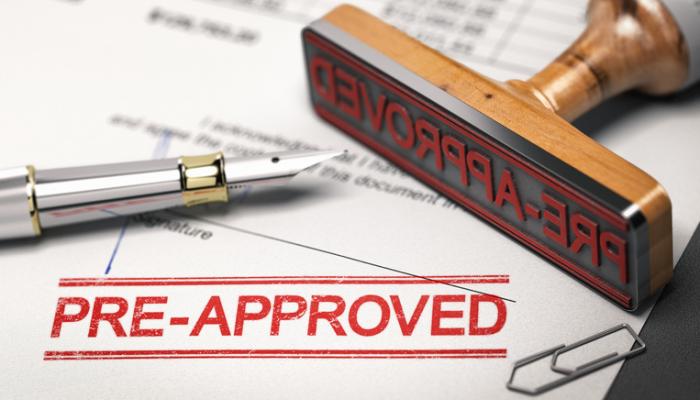Buying a home can be challenging for military and Veteran buyers. A home purchase is a major financial decision, and the right guidance is crucial. While using a real estate agent can offer a lot of benefits, picking the right one isn’t always quick or easy.
We'll explore eight key questions that military and Veteran buyers should ask a real estate agent before working with them. These questions aim at making sure the agent is truly committed to finding the right home for you.
1. How familiar are you with VA loans and their requirements?
The real estate agent you work with should have a solid understanding of VA loans and their requirements. Your agent should explain the benefits, such as no required down payment, as well as any limitations or fees associated with VA loans, ensuring you fully leverage this benefit.
Your agent should also be aware of the VA's Minimum Property Requirements (MPRs) and how they play into your home search to help you find a home that not only suits your preferences but also is likely to pass the VA appraisal process.
2. What experience do you have with military or Veteran homebuyers?
Choosing a real estate agent who has a background working with military and Veteran buyers can significantly enhance your homebuying experience. These agents are typically well-versed in military relocations, deployments and the specific financial benefits available to the military community.
They often have a network of professionals familiar with VA loans as well, including lenders, inspectors and title companies. This could streamline the process and ensure that everyone involved understands the unique needs of a VA home loan.
3. Can you provide references from other military or Veteran clients?
Requesting references from a real estate agent is more than just a formality. It's a strategic move to verify the agent's expertise, reliability and ability to navigate the unique aspects of military and Veteran homebuying.
References can offer firsthand insights into the agent's performance and their commitment to serving those who've served. It’s also beneficial to look at the agent’s reviews and credentials online beforehand.
4. How do you communicate with your clients?
A good real estate agent understands that clear and timely communication is key to a successful homebuying experience. They should offer an efficient communication strategy that aligns with their client's preferences, whether it's through email, phone calls, text messages or video chats. This flexibility ensures that regardless of the client's schedule or location, the lines of communication remain open and responsive.
5. What is your strategy for finding a home with a quick turnaround?
Some military homebuyers need a quick turnaround in their home search due to an upcoming deployment. Making sure your agent understands your specific needs, preferences and budget early on is important. An experienced agent will have local market knowledge and a strong network that can provide access to off-market listings and early notices of new properties, streamlining the search process.
Working with a Veteran-friendly agent who is familiar with VA loans can also limit unnecessary setbacks that could delay your closing date.
6. Are you familiar with local resources and communities for military families?
Familiarity with local resources means the agent can guide military buyers toward neighborhoods that are not only welcoming but also equipped with the necessary infrastructure to make the transition smoother. This includes access to VA hospitals or clinics, military bases and schools with programs for children from military families.
Additionally, being knowledgeable about local Veterans' organizations, support groups and employment opportunities can significantly impact the well-being of Veterans and active-duty families alike.
7. What strategies do you use to negotiate terms?
Having a real estate agent with excellent negotiating skills can help you secure the most favorite terms with your home purchase. This may involve requesting seller concessions to help cover closing costs, negotiating home warranties or repairs and accommodating specific timelines that align with your deployment or relocation schedules. Effective communication and building trust with the seller's agent can establish a better relationship, leading to a smoother negotiation process.
8. How do you support your clients through the closing process and beyond?
A knowledgeable agent will help guide you through each step of the closing process, from understanding VA closing costs to navigating any last-minute hurdles. They coordinate closely with lenders, title companies and inspectors who are experienced with the VA loan process, ensuring any issues are promptly addressed to minimize stress for you as the buyer.
A dedicated agent remains available for questions or concerns that arise after moving in, whether it's advice on refinancing in the future, understanding homeowner taxes and title insurance or simply providing recommendations for local contractors or services.
» CALCULATE: Calculate your VA Loan savings
Get Started Veterans United Realty
Veterans United Realty helps connect military members and Veterans to top VA-specialized real estate agents in their area. These agents will be available at every step of the homebuying process to ensure you receive the best service possible. You don’t even need to have a VA loan or use Veterans United as a lender to work with a Veterans United Realty agent!
Related Posts
-
 Can Your Mortgage Be Denied After Preapproval?It is possible for you to get denied for a home loan after being preapproved. Find out why this may happen and what you can do to prevent it.
Can Your Mortgage Be Denied After Preapproval?It is possible for you to get denied for a home loan after being preapproved. Find out why this may happen and what you can do to prevent it. -
 VA Renovation Loans for Home ImprovementVA rehab and renovation loans are the VA's answer to an aging housing market in the United States. Here we dive into this unique loan type and the potential downsides accompanying them.
VA Renovation Loans for Home ImprovementVA rehab and renovation loans are the VA's answer to an aging housing market in the United States. Here we dive into this unique loan type and the potential downsides accompanying them.

